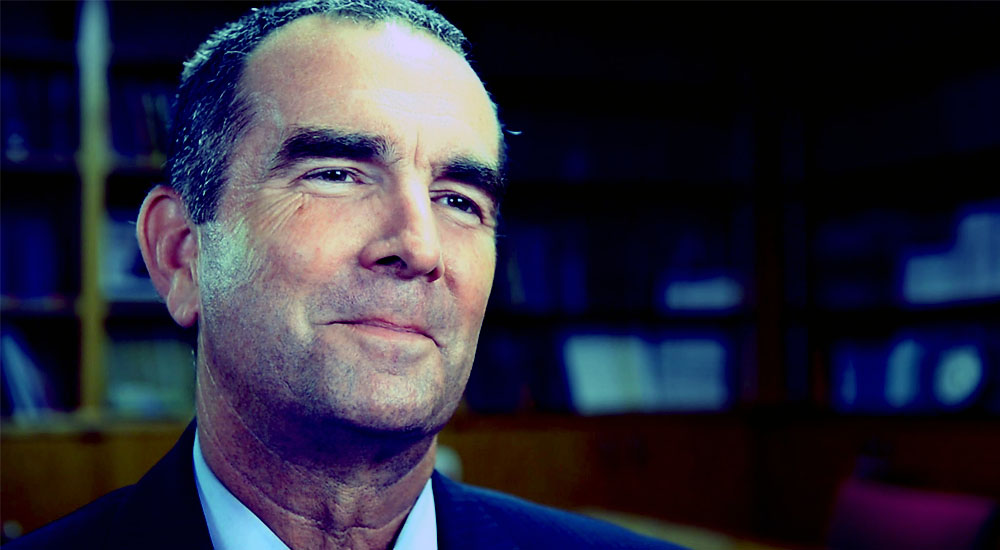“To drill, or not to drill; that is the question.” No, that’s not what Shakespeare wrote, but it bodes as a grand question to the future of offshore drilling in Virginia and other states after a draft bill was considered by a House panel on Thursday.
Lawmakers on the House Committee on Natural Resources have deliberated a measure that says Virginia and other coastal states would be free to reject oil and drilling proposals in federal waters, but they would have to pay for the privilege to say “no.”
Called the Enhancing State Management of Federal Lands and Waters Act, a proposed amendment to the Outer Continental Shelf (OCS) Lands Act, states who deny the expansion of land leasing and sales to fulfill federal energy requirements would have to pay an amount equal to the estimated value of the oil and gas buried under the seabed, plus hefty percentages on top of that.
States that do not allow economically bolstering offshore drilling do share in the revenue generated and decreased fuel prices, causing an undo burden on states who participate in the mission of creating an energy-independent America. The Trump Administration is adamant about increased offshore drilling and energy exploration as it will create more jobs and provide long-term energy security, ending dependence of foreign energy reserves.
According to the Daily Press, Virginia Governor Ralph Northam joined governors Roy Cooper of North Carolina, Daniel Malloy of Connecticut, Philip Murphy of New Jersey, and Gina Raimondo of Rhode Island in opposing the House draft bill.
“Despite its name, this bill does not enhance state management of offshore waters – it eliminates it,” the governors wrote in opposition.
“Under the guise of providing an option to states, this legislation would impose a hefty cost on states that choose to exercise jurisdiction over their shorelines,” they said. “Though a legislative proposal that simply encouraged offshore drilling would be misguided, one that harshly rebukes states for acting within their rights to appropriately respond to the needs of their economies and citizens is truly objectionable.”
The White House has created a path to reverse the country’s Obama-era five-year energy plan and open up nearly all U.S. coastlines to possible offshore oil and gas development. As of now, a bipartisan faction of 15 coastal governors are in opposition.
Officials and executives from energy industries far and wide have said developing offshore oil and gas exploration and production would be a blessing to coastal economies, and that new technologies have made ocean seabed drilling much safer than in the past.
Within the terms of the draft bill, oil and natural gas reserves will be mapped along the OCS, with the gathered data being kept from the public, unless the Department of the Interior receives written approval from whomever conducted the mapping.
There will be a 45-day period in which a state can decide to refuse leasing and sales of coastal areas. According to the bill, a failure to reply during the waiting period may be taken as consent to drill.
If a state does deny, the Department of Interior can refuse to offer a lease for energy exploration or development for 10 years. A denial, however, will be costly.
According to the report, “A state that rejects half or more potential lease blocks will be held liable for the value of the oil and gas reserves not getting tapped.”
The price to pay will be based on, “proven mineral potential, oil prices and lease-sale demand over the past five years, plus the estimated demand for the next five years.” As well, a 10 percent penalty will be added, with an additional 10 percent for each rejected lease block.
Nevertheless, if a state approves the leasing and sales blocks, it will be rewarded, “with half of the bonus bids, rentals and royalties generated.” If only half of the blocks are granted, a state will receive an, “undetermined percentage of bids, rentals and royalties.”
Northam explained that the proposal “eliminate[s] states’ authority,” rather than, “work[ing] with us to develop the new energy technologies we need to fight climate change and make our country a leader in the global energy economy of the future.”
For Virginia’s governor, advanced offshore energy exploration and drilling for oil and natural gas represents, according to a statement from him Thursday, “[a] clear and present threat to Virginia’s economy, our military assets and our natural resources.”

